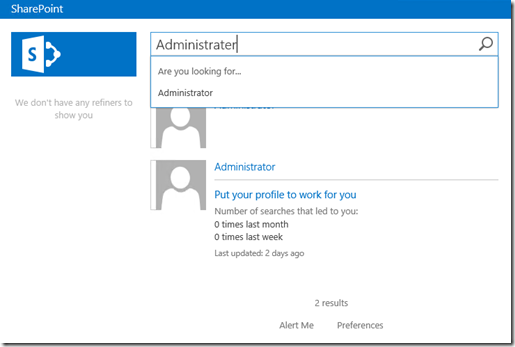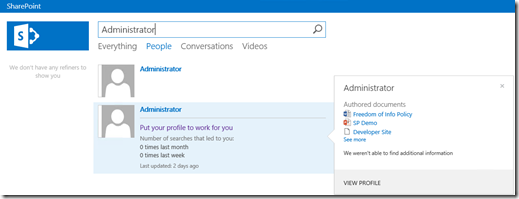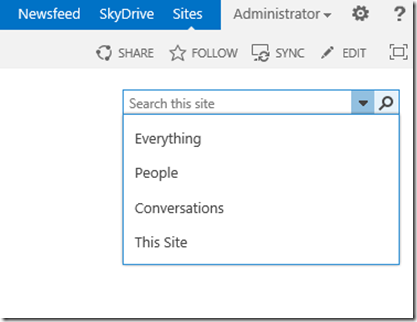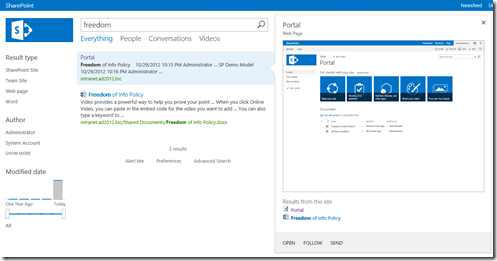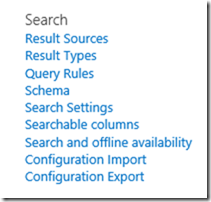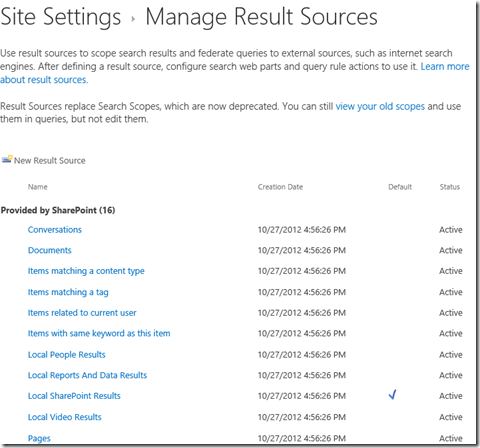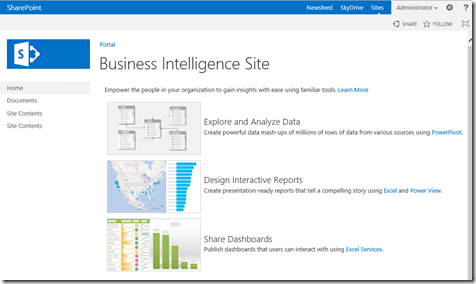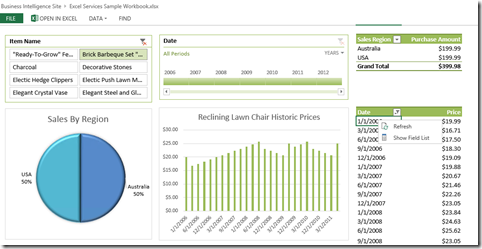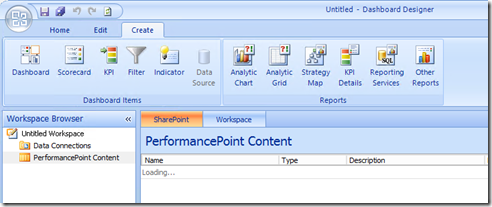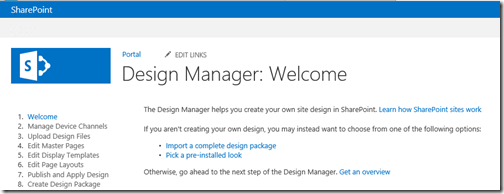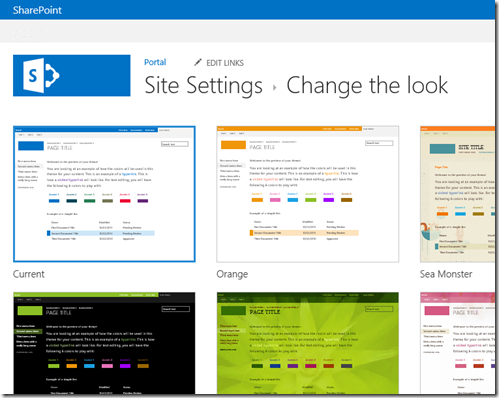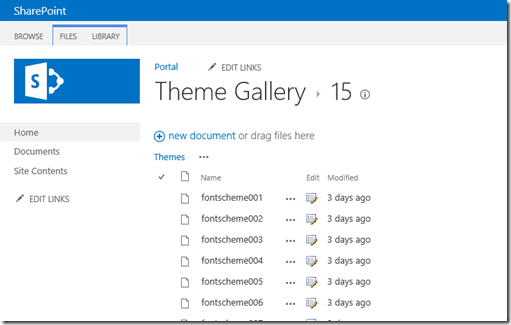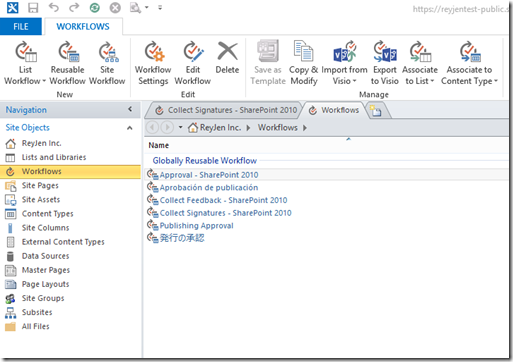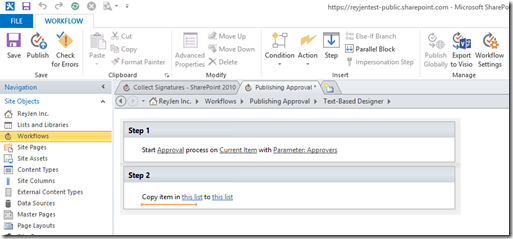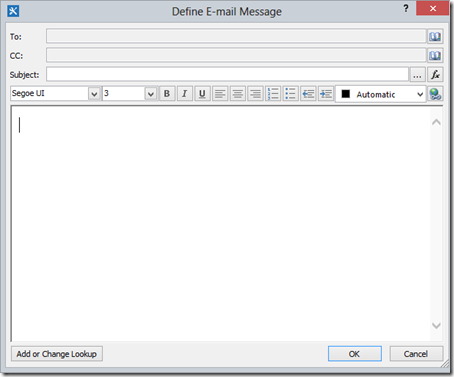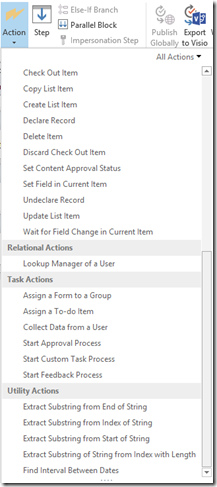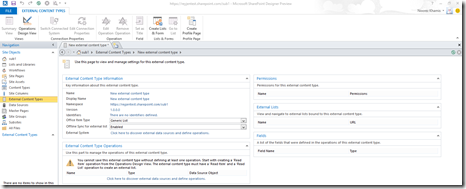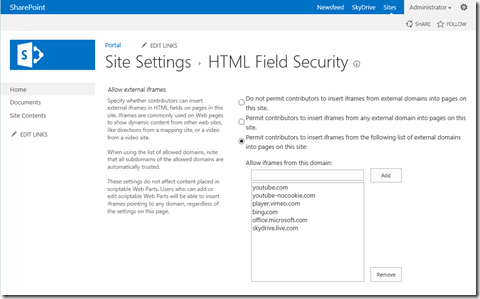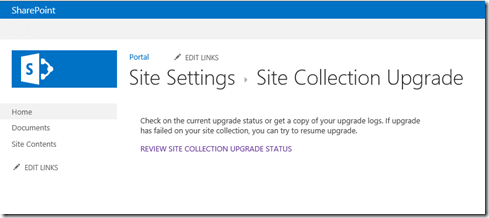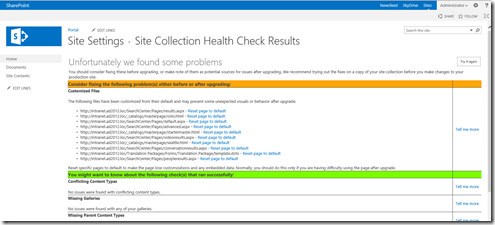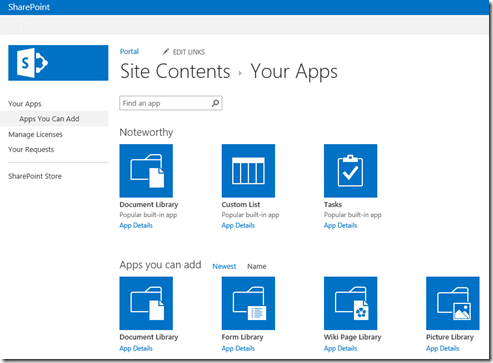Continuing on Part 1 of What’s new and different in SharePoint 2013 Server as well as Part 2, below is a continuation with some more features that are new and different along with some easy to read descriptions and some screenshots:
Search
People and Expertise Search Enhancements
Multi-lingual phonetic search (or people name variations), search results display authored documents and information about past projects that showcase a person’s expertise and a new contact card to contact someone directly from the search results.
Better placement of search box with easy scope selection. Logically grouped searched results and query suggestions based on past results. New hover panel allows you to see additional data without having to click the item.
Search Centers, Search Results and Result Sources
Search Centers are now maintained at the site level giving site owners to manage their styling, settings and results. Furthermore, admins, owners or designers can specify locations on where to get the search results from by using a new concept called “Result sources”. Result sources allow the specification of a content repository such as local SharePoint sites or federated sources.
Business Intelligence
New BI Site, OData access from Excel, Mobile Access
A new Business Intelligence site, enhancements in Excel and PerformancePoint Services and support for viewing BI content on mobile and tablet devices such as IPad. Also connect external data using OData providers in SharePoint or Office 365.
More advanced BI capabilities in Excel and Excel Services
Ability to drill into data displayed in Excel Services reports and dashboards, better timeline controls, right click context menus, ability to add, change, and remove items from rows, columns, values, and filters in PivotChart and PivotTable reports, publish workbooks that contain calculated measures and calculated members.
PerformancePoint Services
PerformancePoint dashboards now all searches on items within filters which gives the ability to focus on a small number of items in a filter that might contain many items. Includes a new look and feel with transparent dashboards enabling use of custom background images, and ability to move entire dashboards from one location to another.
Site Customization
Design Manager
Design Manager enables a step-by-step approach for creating design assets that you can use to brand sites. Upload design assets—images, HTML, CSS, and so on—and then create your master pages and page layouts. You can preview how your design looks either in a client-side code editor or on the server as you are designing it.
These Gallery
There is a new theming experience that guides you through a quick process to change the look of your site and make it unique. You can choose among multiple options of color, font, site layout, and available background images or your own.
Workflows
Redesigned workflow architecture
Microsoft SharePoint Designer 2013 has major improvements for designing workflows and modeling more complex business logic and process. SharePoint 2013 workflows are built on a new architecture and infrastructure called Windows Workflow Foundation 4 (WWF4) but still support SharePoint 2010 workflows.
More complex logic and loops in SharePoint Designer 2013
Workflow Stages allow you to model workflows as containers of logically grouped actions and stages also allow for looping so you can have more control over the flow of the logic and create more sophisticated workflows.
Multiple Designers
Two ways to author workflows, the traditional text-based workflow designer in SharePoint Designer 2013 and a new visual designer based on Microsoft Visio 2013 and the Visio workflow shapes. Dynamically switch back and forth between the text-based and visual designers while editing the same workflow.
Improved workflow email editor
Easier to format workflow email message by using a standard formatting toolbar to the workflow email editor
New workflow actions
- Assign a Task, Start a Task Process, and Go to This Stage
- Call a Web Service
- Start a List Workflow, Start a Site Workflow
- Build DynamicValue, Get Property from DynamicValue, and Count Items in DynamicValue
- Trim String, Find Substring in String, and Replace Substring in String
- Translate Document
- Set Workflow Status
- Create a Project from Current Item
- Set the current project stage status to this value
- Set the status field in the idea list item to this value
- Wait for Project Event
- Set this field in the project to this value
External Data Access
Add and Analyze External Data in Excel and Visio and BCS Performance Improvements
Export data from an external list to Excel 2013 and keep the data synchronized. Under the covers it will create a data connection to your SharePoint External List. Enhanced performance features help speed up the display, refresh, and data operations of the external data on a web page and in any Office product that works with external data.
Security, site management, and site upgrade
Security, site management, and site upgrade
Allow or disallow iFrames
Tightened security on iFrames by specifying a list of domains from which iFrames are accepted.
Site collection upgrade experience and Deferred site collection upgrade
Flexibility for farm and site administrators by separating the process for upgrading the software and databases from the process for upgrading sites. Site Collection Admins can perform their own self-service upgrades to their sites, whenever it is most convenient for them.
Site collection health checker and evaluation site collections
Use the site collection health checker to detect and auto repair some issues with their site collections and address them before upgrading the sites to the new version. In preparation for upgrading the site, site owners or administrators can request an evaluation site collection, which is a copy of the site, for review purposes. Evaluation sites are set to automatically expire and be deleted.
Introducing apps for SharePoint
SharePoint Server 2013 includes support for the development, installation, management, and use of apps. An app is a small-scale, stand-alone program that solves a specific end-user need. End users can discover and download apps from the SharePoint Store, or from their organization’s Internal App Directory.
Refer to my Slide Deck on Introduction to the new SharePoint 2013 App Model
View SharePoint 2013 Server – What’s new and different? – Part 1 here
View SharePoint 2013 Server – What’s new and different? – Part 2 here
For more in depth information of the new and improved features in SharePoint 2013 Server visit http://technet.microsoft.com/en-us/library/cc261970(v=office.15)
